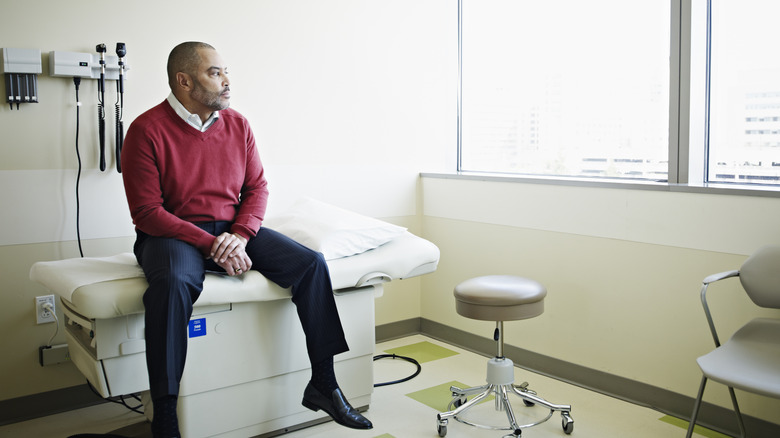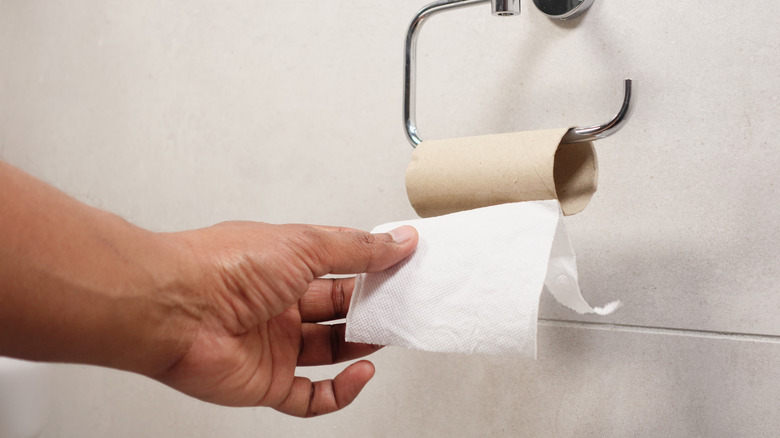The Poop Symptom That Could Mean A Man Has Prostate Cancer
Prostate cancer ranks as the second highest type of cancer among men, next to skin cancer. Although one out of every eight men will be diagnosed with prostate cancer, more than half of those diagnoses occur in men over 65, according to the American Cancer Society. Detecting prostate cancer early is key to survival, with more than a 99% survival rate if the cancer hasn't spread to other parts of the body.
A prostate cancer screening such as a prostate-specific antigen (PSA) test or a digital rectal exam (DRE) can help detect prostate cancer, but some symptoms might emerge either before a prostate cancer diagnosis or during prostate cancer treatment. One of the symptoms of more advanced-stage prostate cancer is bowel incontinence.
Similar to urinary incontinence, bowel incontinence occurs when you have difficulty controlling your bowel movements. This does not always involve complete loss of bowel control, though in severe cases, it is possible. Bowel incontinence also includes problems controlling gas, leaking watery stools, or constipation.
Why people with prostate cancer might have bowel incontinence
Bowel incontinence could occur for several reasons related to prostate cancer. If prostate cancer has spread to the spine, the tumor presses on the nerves controlling the bowels. This more advanced stage of prostate cancer could also cause numbing or tingling of the feet. Bowel incontinence could be permanent if the nerves of the spine are damaged. Although it's less common, prostate cancer that's spread to the bowels could also result in bowel problems.
Prostate cancer treatments might also cause bowel incontinence because the prostate is near the digestive tract. Radiation treatments such as brachytherapy and external beam radiation therapy have bowel-related side effects such as bowel leakage or bloody stools. According to ProstateCancer.net, 20% of people undergoing radiation treatment for prostate cancer could experience bowel problems. If you experience bowel incontinence while undergoing prostate cancer treatment, this symptom will eventually resolve after you complete your course of treatments.
Possible treatments for bowel incontinence
Both urinary and bowel incontinence can occur when you get older, but you shouldn't overlook these issues as a possible symptom of prostate cancer. The American Cancer Society says the average age of a prostate cancer diagnosis is age 67, so you should maintain prostate cancer screenings to rule out prostate cancer. If you do have prostate cancer and experience problems with incontinence, you can work with your medical team to develop strategies to manage your symptoms.
One treatment for both bowel and urinary incontinence is working on the muscles of your pelvic floor. Kegel exercises are good for your prostate health not only to prevent and treat incontinence but also to boost blood flow to your prostate. You might also be referred for bowel retraining, which teaches your body to poop on demand. Your doctor might also recommend changes to your diet, such as avoiding spicy, fried, or even high-fiber foods that could upset your bowels. Drinking plenty of water while also reducing caffeine and alcohol might be another method to relieve bowel problems.



